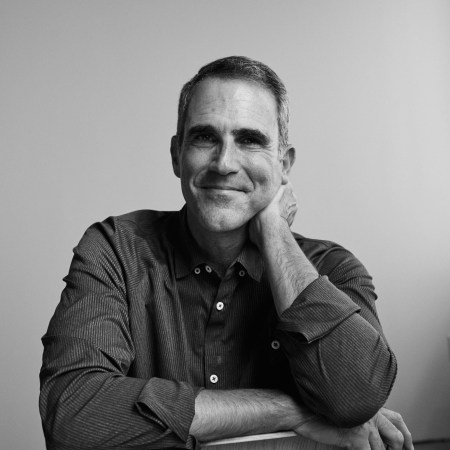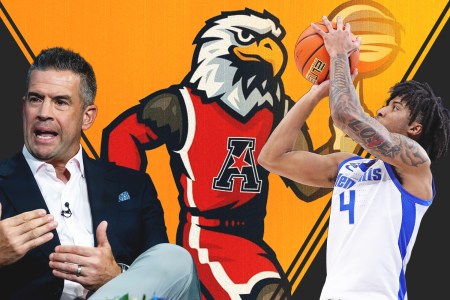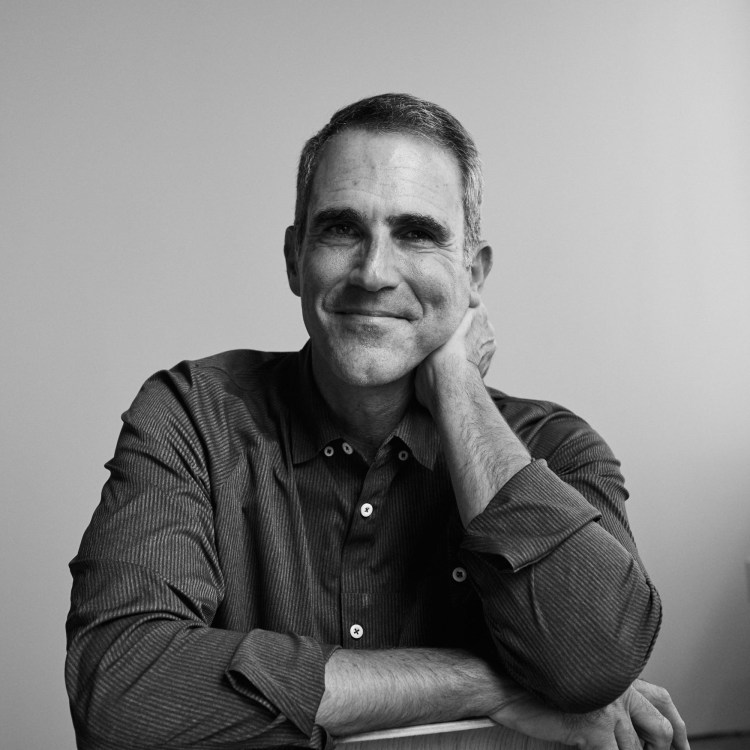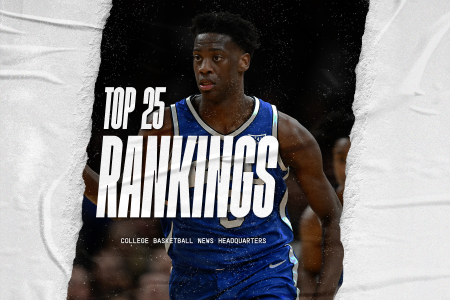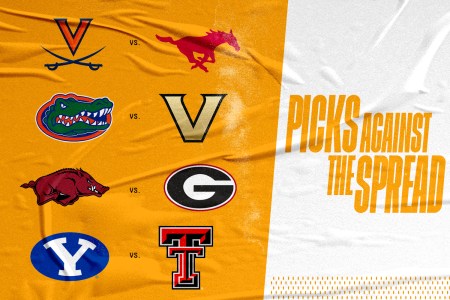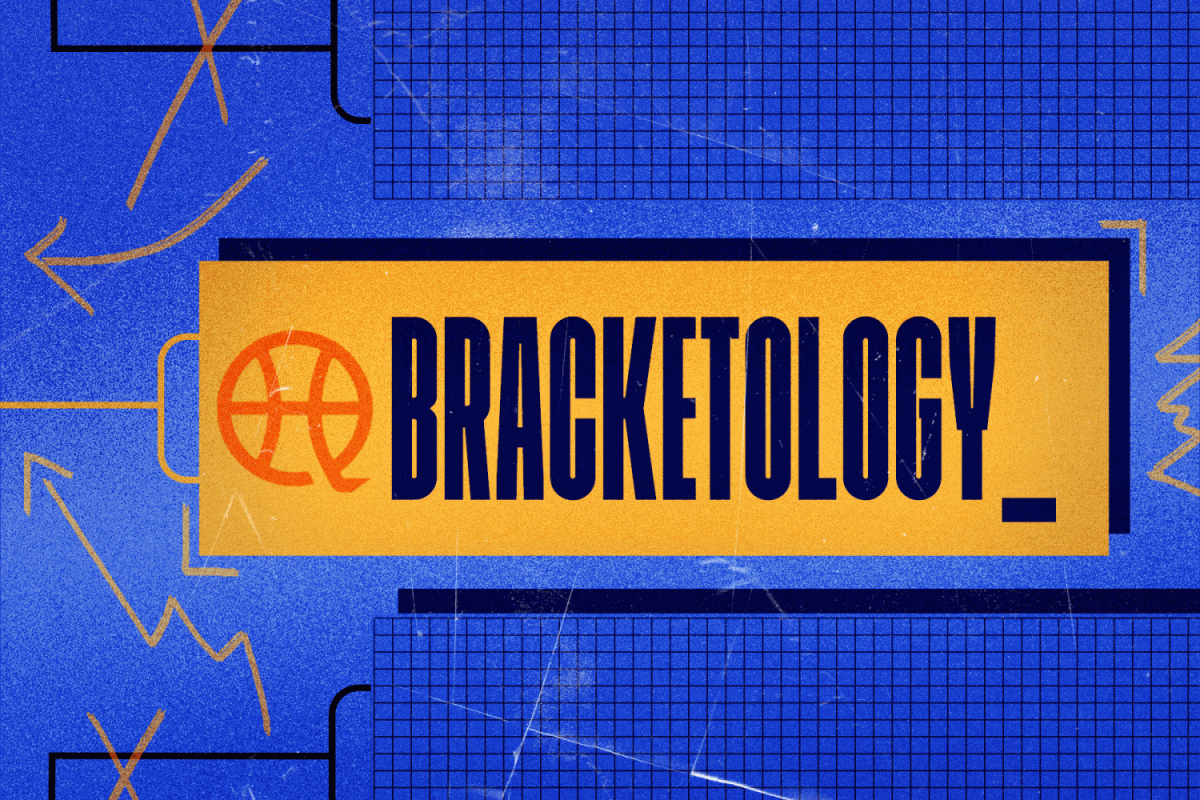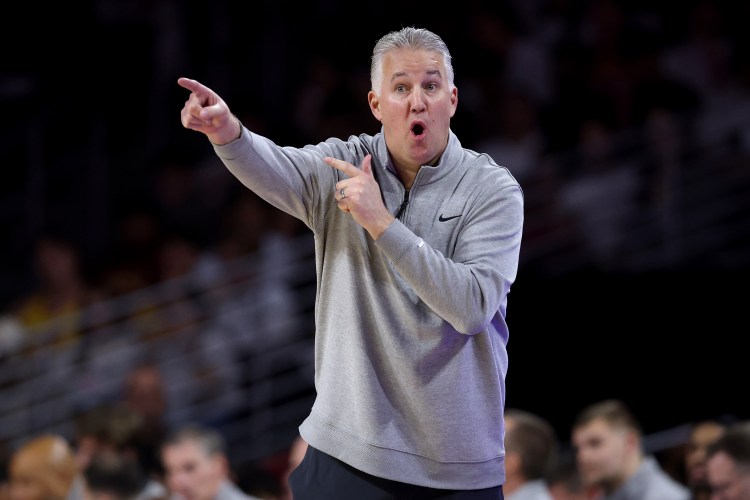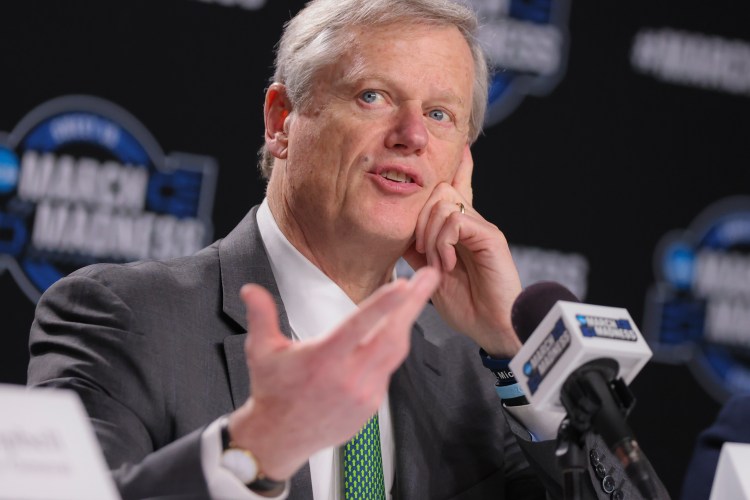Brett Yormark marked his three-year anniversary as Big 12 commissioner on August 1, but he’s not one for reflecting, celebrating, or even standing still. He’s too busy making change, managing disruption, and otherwise being a pesky gadfly in the normally staid world of college athletics. Yormark’s modus operandi fits nicely with the league he leads. The Big 12 has a firm, established seat at the grown-ups table, but it’s not at the head of the table. (The Big Ten and SEC own those chairs.) If that means Yormark has to pound the table sometimes to get someone to pass the sugar, that’s a small price to pay to ensure that all his schools eat.
Yormark took the reins of the Big 12 at a precarious moment, just one year after Okahoma and Texas announced they were leaving for the SEC. The Big 12 had recently announced the additions of BYU, Cincinnati, Houston and UCF. A year later, Yormark procured Arizona, Arizona State, Colorado and Utah, all former Pac-12 schools. The expansion coincided with a $2.28 billion media rights extension with ESPN and FOX. Yormark has also overseen the launch of Big 12 Studios and Big 12 radio while negotiating packages with Turner Sports and NBC Sports, who will combine to produce several dozen games this season.
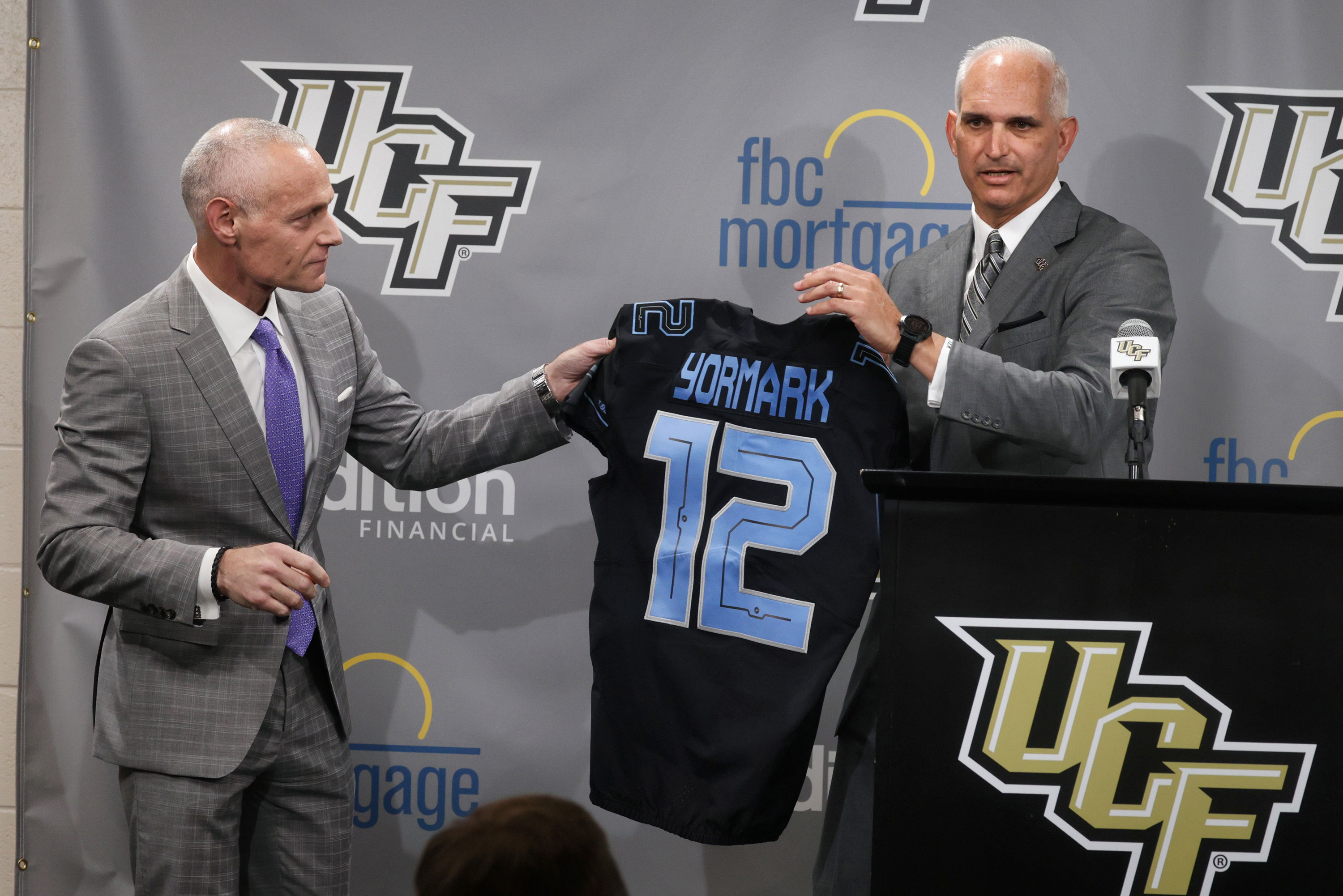
Apparently, that’s not enough, because lately Yormark has been talking about taking the Big 12 global — not by adding teams from overseas (though no one would be surprised to learn he was negotiating with University College London) but by staging events outside the U.S. That vision was in evidence last weekend when two top-25 teams from the Big 12, Iowa State and Kansas State, kicked off the college football season with a riveting contest in Dublin. Yormark hopes to continue growing the Big 12’s international footprint, not only as a business strategy but as a reflection of his desire for his schools to think big big big.
So it’s no surprise that Yormark shrugs off the suggestion that the Big 12 is the annoying little brother relegated to second-class citizenship alongside the Big Ten and SEC. “I understand what public perception might be, but I’m very, very confident in the position of the Big 12 right now,” Yormark said during an exclusive interview with Hoops HQ. “We’re performing at a high level and we’re investing at a high level. I really believe our better days are ahead.”
Yormark admits to being a provocateur at times but demurs at the suggestion that he’s a proverbial bull in a china shop. “I’d rather say I’m a change agent,” he said. “I’m not afraid to break boundaries. I’m not afraid to do new things, all in an effort to create value and momentum for this conference. So if I’m a change agent, I’m a change agent that wants to bring about positive change.”
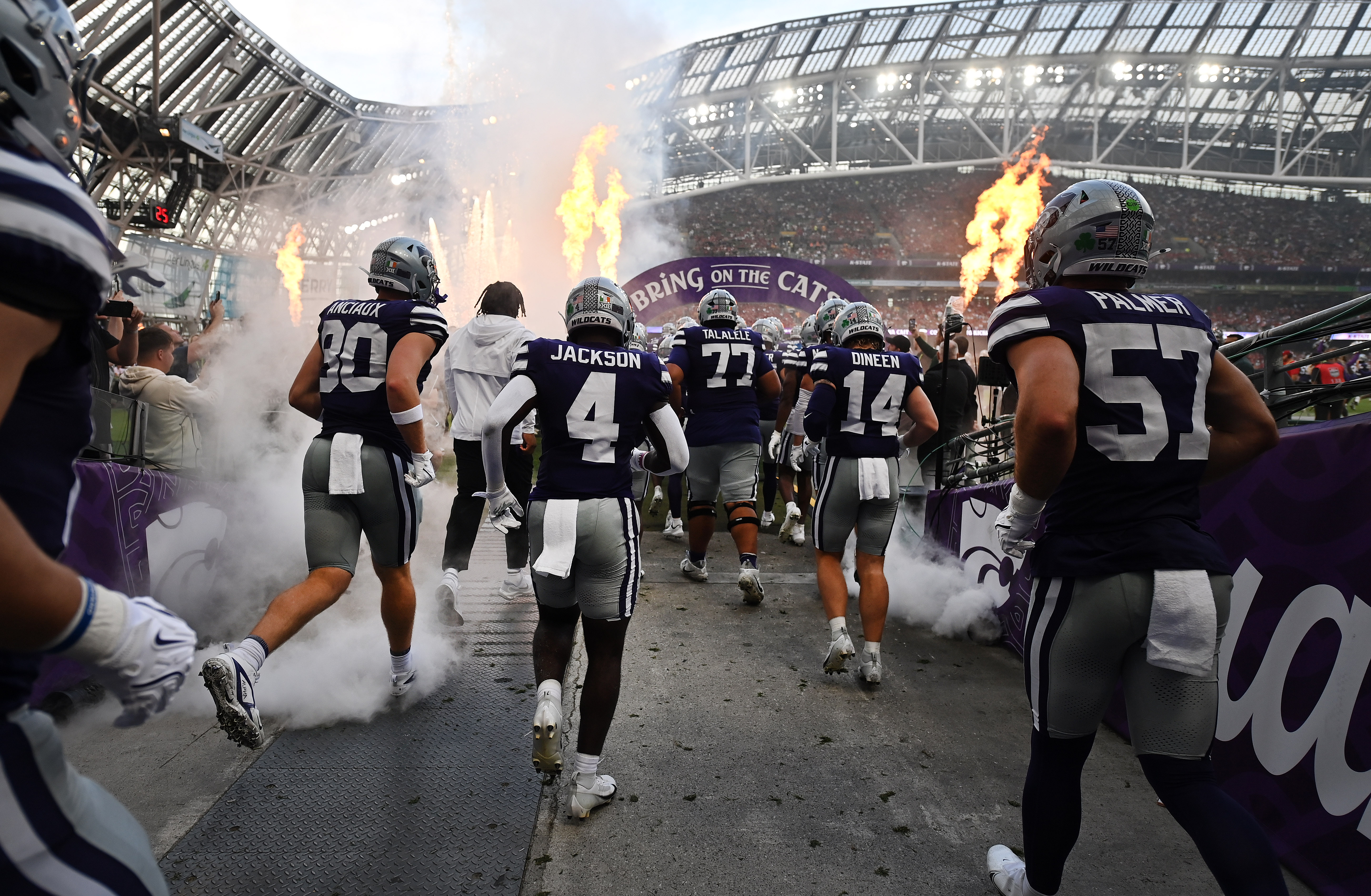
Like a lot of public figures who are not shy about expressing their opinions, Yormark has ruffled feathers from time to time. Most recently, he got in a contretemps with SEC commissioner Greg Sankey, who took issue with Yormark’s pledge to “double down” on his argument that the college football playoff should only award automatic bids to the five highest-ranked conference champions. At the SEC’s media day the following week, Sankey, who like Big Ten commissioner Tony Pettiti is advocating for more automatic bids for his own league, tossed some thinly-veiled barbs Yormark’s way. “As I understand ‘doubling down’ — that was one of the phrases last week. That’s part of the gambling experience,” Sankey said. “You always want to have a really good set of cards. You want to have a good hand to play. … I think we have the best hand to play.”
The exchange was interpreted in many quarters as indication that the relationships between the power brokers were becoming frayed, but Yormark insists that’s not the case. “The public perception is a little different than what actually plays out when the four of us get together,” he said. “Yeah, we’re not going to agree on everything, but it’s collegial, it’s friendly and it’s competitive. And I think my colleagues would say the same thing.”
The American Conference Has A New Name and an Uncertain Future
Commissioner Tim Pernetti told Hoops HQ, “I’m excited about where we are,” but Memphis’ unsuccessful efforts to join the Big 12 underscore the challenges ahead
It is, indeed, an odd dynamic. The power conference commissioners are both parters and competitors. For Yormark, it is not much different than when he worked for the Nets and did business with the other 29 teams in the NBA. “When the (NBA) owners are meeting, they’re focused on what’s good for the game,” he said. “When they step outside that room, they’re competing.”
In the past, college commissioners have typically come up through the university system, but like Pettiti, who spent most of his professional life as a media executive and worked previously as president and CEO of MLB Network, Yormark took a different path. He has extensive experience in sports marketing and spent 14 years as the CEO of the Brooklyn Nets before Jay-Z hired him to be CEO of Roc Nation. Football is clearly the driver of both revenue and decision making in college sports, but Yormark’s NBA background gives him the designation of being a “basketball guy.” He embraces that label and has long insisted that college basketball is undervalued in the marketplace.
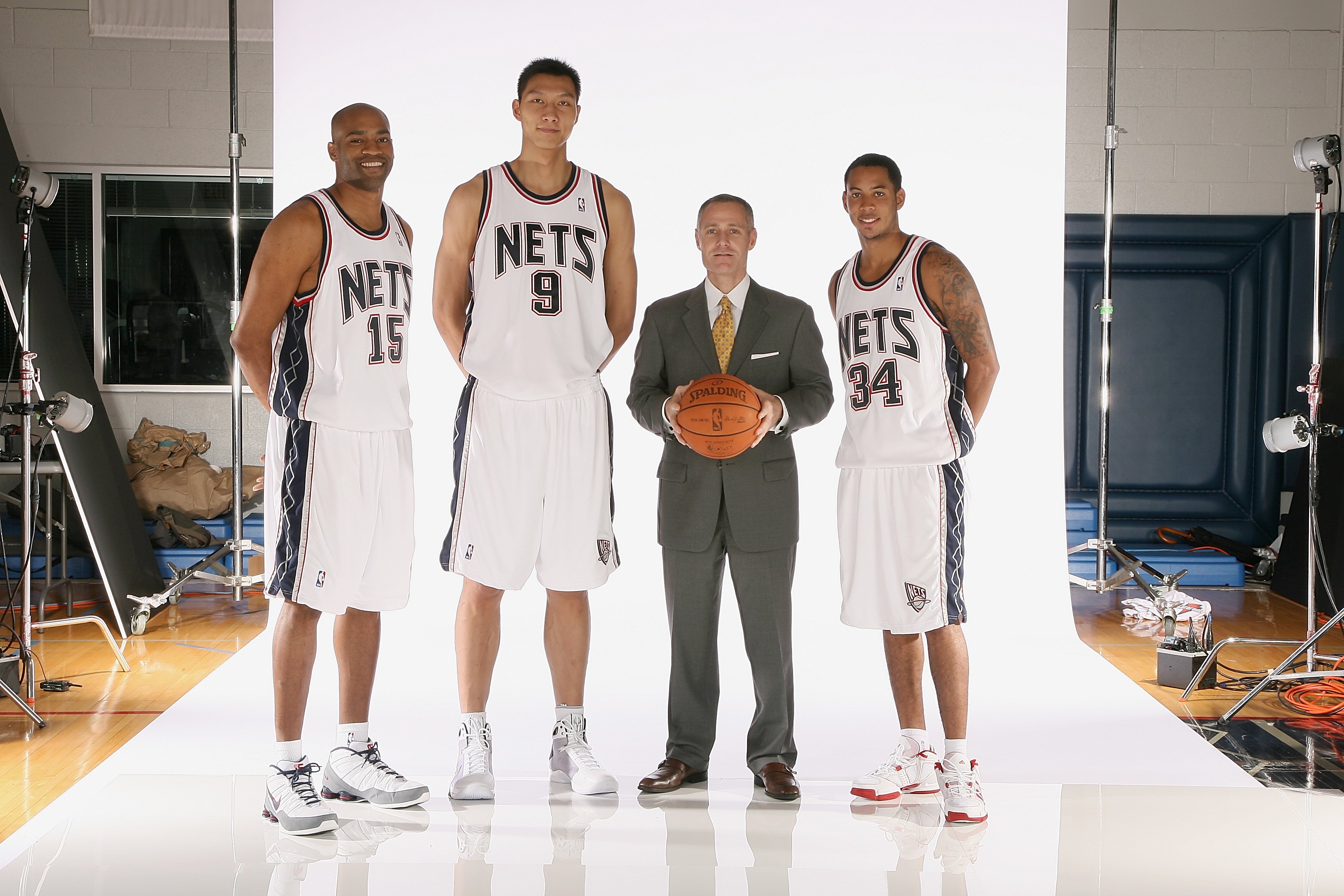
His efforts to change that include pursuing initiatives like TV rights negotiations as well as directing efforts to reimagine the Big 12’s basketball media day later this fall. Yormark has pushed his teams to schedule games both overseas as well as in the New York City market. (Kansas will play Duke this season in Madison Square Garden; Houston and Arkansas will face off in the Prudential Center in Newark.) Yormark tried to add Gonzaga and UConn to fortify the Big 12 for the next round of basketball rights negotiations, but he was unable to get those ideas past a Board of Directors already suffering from expansion fatigue. That, however, doesn’t mean he won’t stop trying.
“Our schools know the importance of basketball for this conference. It’s a big part of our narrative,” he said. “I do believe that basketball is undervalued. As an industry, we need to think about how we bring heightened awareness to the beginning of the season. It’s no different than what the NBA did with their in-season tournament. That was extremely positive for them.”
Yormark also joined his fellow commissioners in a push to expand the NCAA Tournament. The men’s basketball committee declined to vote on the question during its most recent meeting in early August, but that process is ongoing. “I was for expansion, and my coaches voted for expansion,” Yormark said. “The timing was a little bit off because it was late, but I wouldn’t be surprised if it resurfaces itself in the early fall for consideration in 2027.”
Bull in a china shop, gadfly, change agent —however Yarmark is labeled, at least no one is calling him boring. These are unprecedented times in college sports, and this is no time to think small. “There are debates I’m going to win and there are debates I’m going to lose, but I always go back to what’s fair,” he said. “I tell my AD’s and anyone who will listen that we need to put progress over perfection. It’s not going to happen overnight. There are a lot of key stakeholders that have a seat at the table and it requires a lot of hard work to get a consensus. That’s why we’re all working so hard to get this right.”
